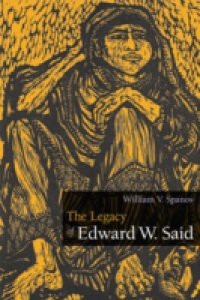With the untimely death of Edward W. Said in 2003, various academic and public intellectuals worldwide have begun to reassess the writings of this powerful oppositional intellectual. Figures on the neoconservative right, who have become influential in the policy-making of George W. Bushs administration, have already begun to discredit Saids work as that of a subversive intent on slandering Americas benign global image and undermining its global authority. On the left, a significant number of oppositional intellectuals are eager to counter this neoconservative vilification, proffering a Said who, in marked opposition to the anti-humanism? of the great poststructuralist thinkers who were his contemporaries--Jacques Derrida, Jean-Francois Lyotard, Jacques Lacan, Louis Althusser, and Michel Foucault--reaffirms humanism and thus rejects poststructuralist theory._x000B__x000B_In this provocative assessment of Edward Saids lifework, William V. Spanos argues that Saids lifelong anti-imperialist project is actually a fulfillment of the revolutionary possibilities of poststructuralist theory. Spanos examines Said, his legacy, and the various texts he wrote--including Orientalism, Culture and Imperialism, and Humanism and Democratic Criticism--that are now being considered for their lasting political impact.

